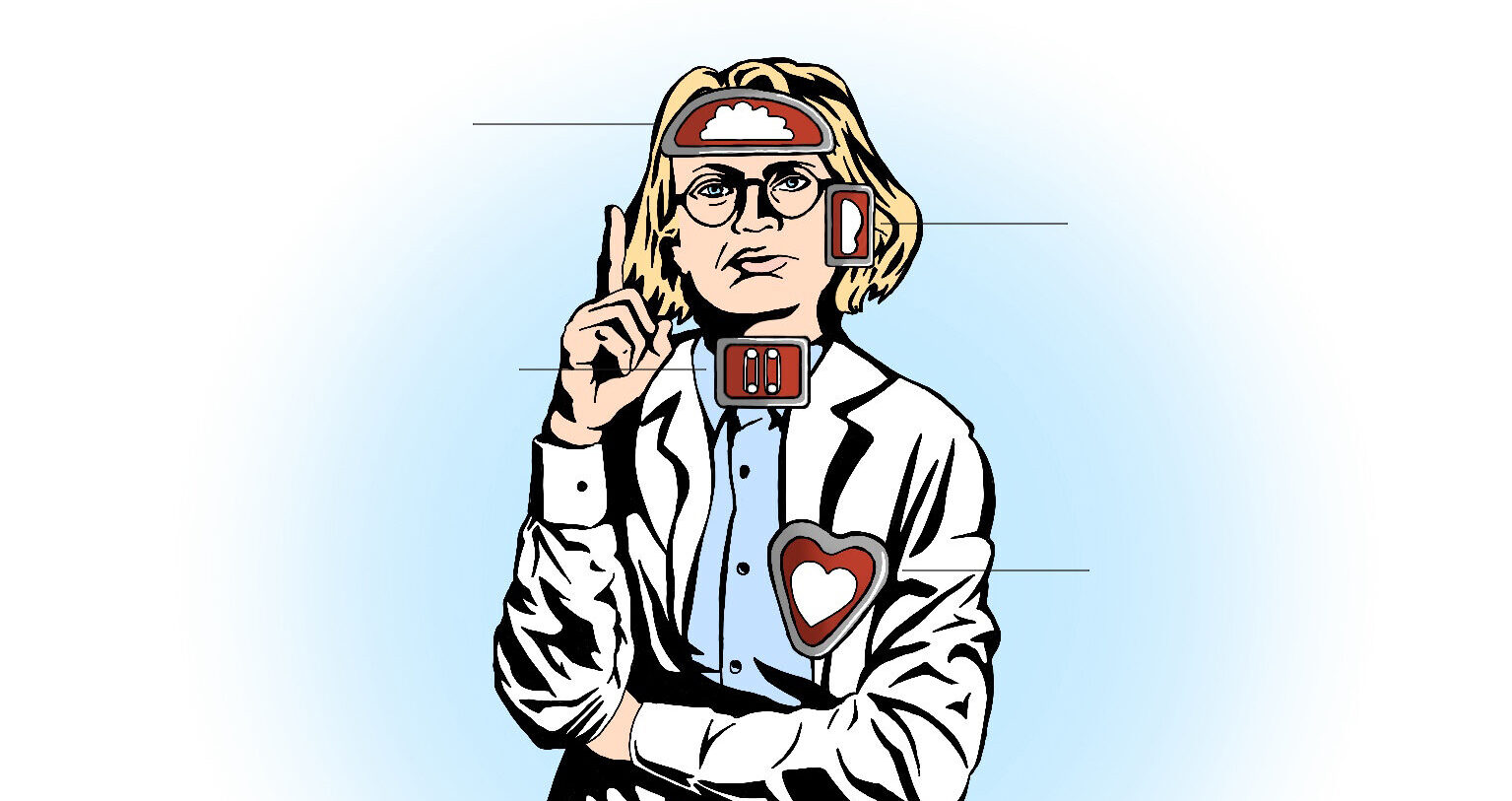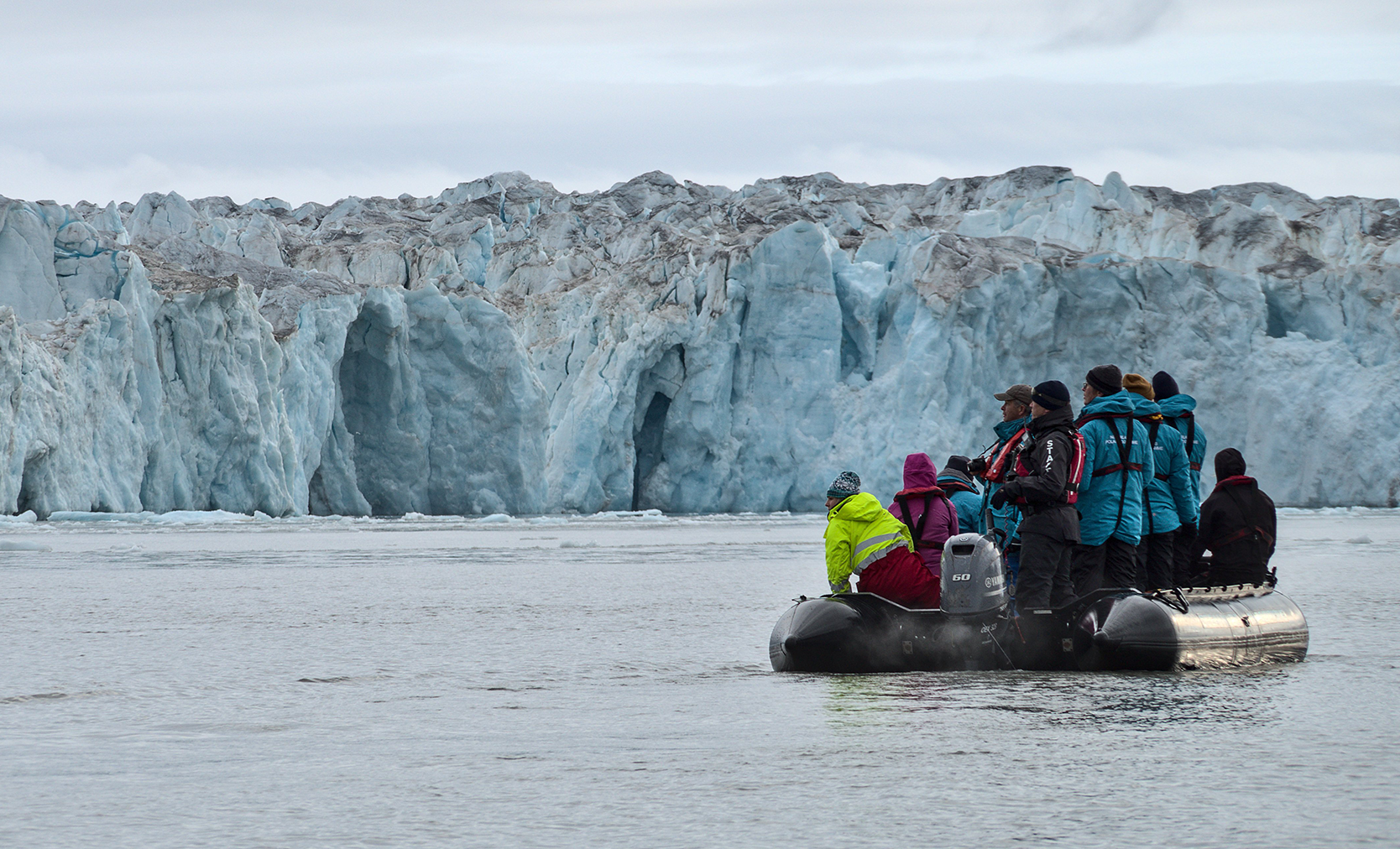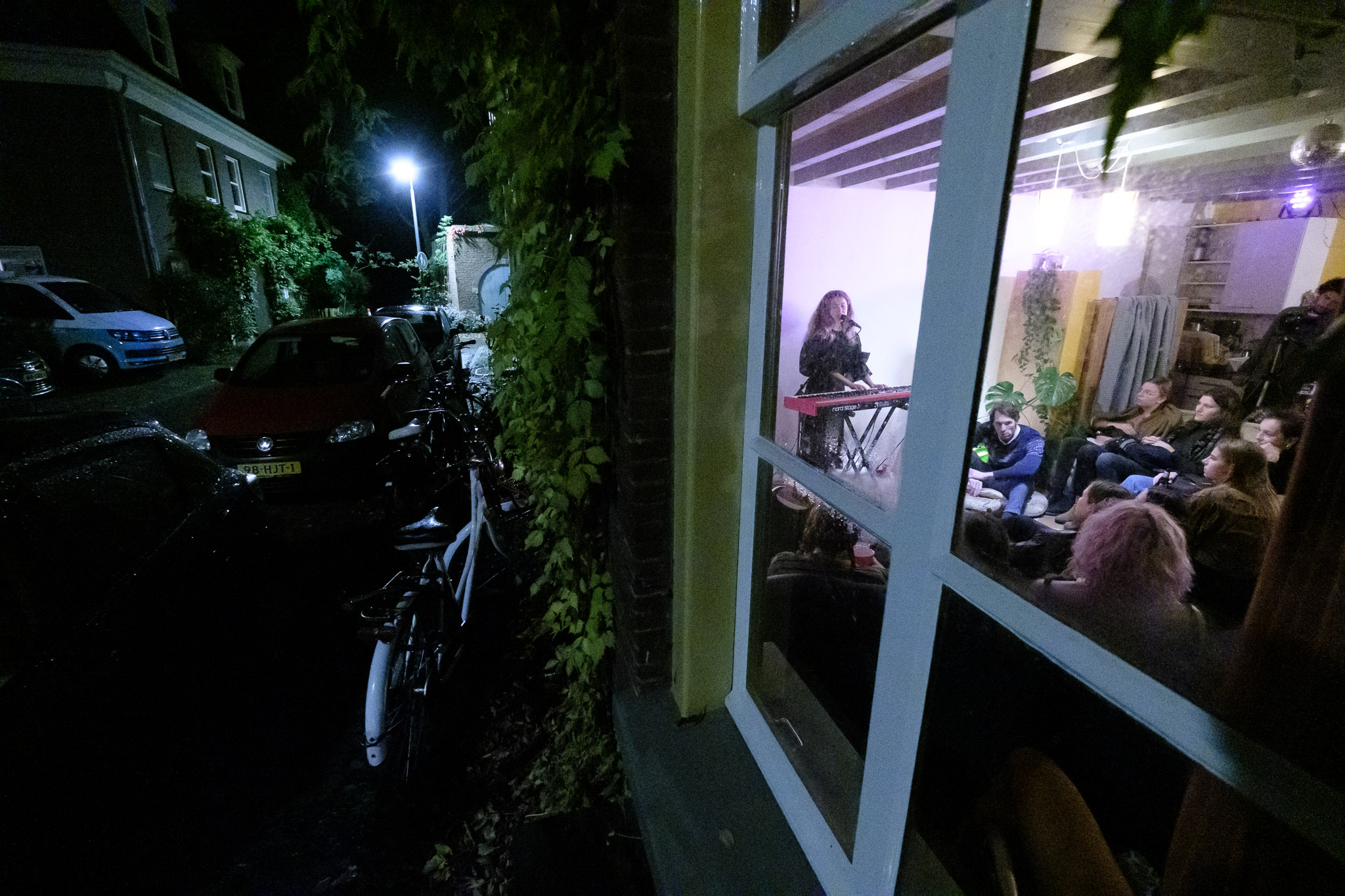What defines a ‘true’ expert in the year 2022? It takes more than a load of knowledge for a scientist to be heard in a society where ‘my own facts’ sometimes seem to matter more than your thorough research.
‘We have the facts, why don’t you listen to what we have to say!’ A cry of despair from Leonardo DiCaprio, as Professor Randall Minke tries to warn the world of an impending disaster in the Netflix hit Don’t Look Up, resounds through Impulse. According to author and commentator Wytske Versteeg, who showed the excerpt during her lecture for Studium Generale, many scientists are familiar with this kind of frustration, which you feel when your findings don’t go down well with your audience. When people don’t appreciate your work, or worse still cast doubt on it, ridicule it and even dismiss it out of hand.
Versteeg was invited by Studium Generale last month to talk about a question that has been topical for a while and which she studied for her doctorate in 2018: what defines an expert*? And what does it take to be recognized and respected as an expert? Clearly, possession of a body of knowledge is not enough; there are many other forces that determine whether your work is taken seriously. Just ask the scientists who have had their meticulous studies dismissed as ‘just another opinion’ or even as alternative facts that cannot be taken seriously, or as deliberate manipulation.
Scientists from Wageningen sometimes find themselves in the dock too. A fairly recent case was the nitrogen researchers who were accused by activist farmers of ‘eagerly seizing the opportunity to score points with the ministry’. Or the ecologists whose wolf study the director of De Hoge Veluwe National Park – yes, the one with that wolf-proof fence around it – vociferously proclaimed to be so ‘one-sided and biased’ that it should be redone by foreign scientists. Climate scientists, of course, have years of experience of being labelled as tub-thumpers and prophets of doom. And more recently, experts on virology and zoonoses have had similar treatment.
Disinformation
Such baseless questioning of your scientific expertise and integrity can drive you to despair. It is maddening to realize that there are people who set store by ‘hours of research’ done by a top model or companies like Moonsisters, but not by thoroughgoing scientific research. The bizarre reality is that conspiracy theories and urban legends are more readily accepted in some circles than systematically proven scientific knowledge. Education minister Robert Dijkgraaf recently called it the biggest surprise of the Covid pandemic: ‘Not the severity of the disease. Not the success of the vaccines. But that disinformation can spread across the globe as quickly as virus particles.’
Fortunately, there is some good news as well: in spite of all the odds against it, science still ranks number one among the institutions in which the Dutch have confidence – even above the judiciary and journalism. And since the Covid pandemic, that confidence has not decreased but increased, from a score of 7.07 in 2018 to one of 7.42 in 2021, according to research by the Rathenau Institute.
And if you listen carefully, Versteeg argued, you can even hear that unshaken confidence reflected in the language of groups that are usually seen as anti-science. Indeed, their vocabulary is remarkably similar to that of scientists. Virus deniers and antivaxxers ‘do their own research’, ‘check their sources’, ‘sometimes want to see the raw data’ and ‘don’t take anything for granted, but think critically’.
Knowledge too is always relational
Versteeg’s explanation for this is partly based on the concept of ‘value shyness’, coined by WUR professor of Science Communication Hedwig te Molder early last year. ‘The modern human is so wary of talking about values and emotions that instead we focus on a battle for the facts,’ says Versteeg. ‘The use of scientific language is often a way to be heard or to be granted a say. Why make yourself vulnerable by talking about feelings, when you know there is a good chance that they will be dismissed as non-scientific, irrational or irrelevant?’
Emotion
Another observation: resistance to science is also a way for people to define themselves; to underline who they are in relation to others. ‘Outsiders might see vaccine refusers as irrational people who deny themselves a valuable shot of proven effectiveness on misguided grounds. But that’s not at all how that person will experience it: they probably define themselves more as a critical mind that doesn’t run with the crowd,’ Versteeg explains. So a lot of the criticism of science is not about science at all, but about worldviews and self-images. ‘Make no mistake: knowledge, like anything else, is always relational,’ says Versteeg. ‘And science is steeped in emotions and social values – so it’s logical that it triggers a lot of discussion.’
A lot of criticism of science is not about science, but about worldviews and self-images
*Further reading? Versteeg’s dissertation is called How do you know? Everyday negotiations of expert authority, and can be found online.

 In this day and age, an expert needs more than just a wealth of knowledge. A thick skin is useful too, as is a listening ear. Illustration: Valerie Geelen
In this day and age, an expert needs more than just a wealth of knowledge. A thick skin is useful too, as is a listening ear. Illustration: Valerie Geelen 

